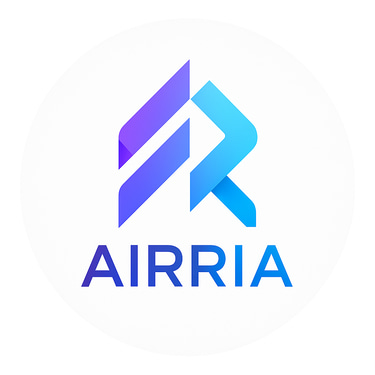Airbnb's 2025 "Everything-App" Gamble
TECHNOLOGY
5/21/20255 min read
Airbnb's 2025 "Everything-App" Gamble
How a stay-booking pioneer just fused hotels, spas and tours-and what it signals for the future of travel.
From three air beds to three pillars
The company that began in 2007 with three inflatable mattresses on a San-Francisco apartment floor has spent the past fifteen years expanding the definition of hospitality. On 13 May 2025 that circle widened again: Airbnb pushed a software update that puts Homes, Services and Experiences on equal footing inside one rebuilt app. CEO Brian Chesky framed the moment in a single caption - "Now you can Airbnb more than an Airbnb."
Why the pivot? In 2024 the app flashed open on 1.5 billion devices but most sessions never reached the pay button. By layering in everyday-priced perks-a $45 manicure, a $60 ramen workshop, a $95 in-home massage-Airbnb hopes you'll tap its icon weekly instead of seasonally.
Meet the 2025 Summer Release
Airbnb Services - hotel perks, minus the hotel
Scale: 10 launch categories in260 cities across eight countries.
What you can book: personal chefs, prepared-meal drop-offs, full-service catering, massage, spa treatments, hair, nails, make-up, personal trainers and photographers.
Quality filter: every provider shows licenses or certifications and averages 10 years of experience before appearing in search.
Starter price: at least one offer below $50 in every listing to keep impulse bookings friction-free.
Because Services are tied to people rather than places, you can summon them even if you live five blocks away from the nearest vacation rental; locals, not just travelers, now belong in the funnel.
Experience 2.0 - concierge desk, reinvented
Airbnb first introduced Experiences in 2016, but a pandemic pause and quality drift led to a full rebuild. The 2025 reboot debuts in 650 cities and 19 categories that range from food safaris to textile workshops. A new celebrity-fronted tier called Airbnb Originals drops limited-seat events-think Jimmy Kimmel's $50 backyard cook-out or a pastry masterclass at The French Bastards bakery in Paris-Sneaker-drop style push alerts go out, seats evaporate in minutes, and proceeds funnel to charity or the host's pocket.
A freshly coded app that behaves like a travel companion
Explore scrolls like TikTok for trips, interleaving castles, cooking classes and spa vouchers in one algorithmic reel.
Trips turns into a living itinerary - your check-in code shows up first, Tuesday's chef dinner appears beneath it, Wednesday's ramen class slides in after that.
Messages now handles photos, video and in-thread payments; later this year, group chats will persist so guests can trade photos after a tour.
AI concierge (beta in the U.S.). The same bot that re-books a cancelled tour is being trained to suggest bundled plans ("Rain on Friday - want MoMA skip-the-line tickets?")
Services in action: a one-day story
Morning - A push alerts suggests an oat-milk-latte barista for $35 per guest. You tap Book, pick 9 a.m., pay with Apple Pay and watch the booking drop into the Trips timeline.
Afternoon - Your photographer meets you at the palace gates, shoots candid portraits, then Airdrops proofs by sundown.
Evening - A Michelin-trained chef arrives with groceries, cooking gear and a playlist; the loft smells like basil by 8 p.m. A single receipt hits your inbox, and you rating-swipe all three providers before bed.
Nothing here required a separate app, credit-card form or email thread - Airbnb became an end-to-end operating system for the day.
What hosts and providers stand to gain
Revenue streams: a stay host who earns $200 per night might add $60 for each manicure or $95 for a private yoga session booked in-home-even though the service fee goes to a third party.
Simpler tooling: listings, calendars, messages and payouts for every vertical live in the same dashboard.
Cuts and promos: Airbnb keeps 15 percent on Services and 20 percent on Experiences, but early adopters see a 10 percent promo rate through 2025.
Hosts who don't love the idea of strangers wielding chef's knives in their kitchens can opt out with a toggle, though community forums already bristle about liability and insurance gaps.
Global context: why India keeps coming up
Observers noticed the new marketplace looks a lot like mash-ups thriving in India:
Urban Company lets millions summon massages, hairstylists and chefs across 50+ cities, racking up rupees 846 crores (~$100 million) revenue in the first nine months of FY25.
Swiggy Pyng, launched in April 2025, connects Indians to 100+ verified pros - yoga teachers, tax advisors, sushi chefs - inside food delivery's existing wallet.
MakeMyTrip has chased a "travel super-app" strategy all year, testing tours and transfers under a single wallet.
Chesky calls India a "long-game" market and openly studies its one-app culture, yet the first real blueprint for super-apps emerged in China (WeChat, Meituan) and Southeast Asia (Grab, Gojek). Airbnb's release feels less like a copy-paste of any single country and more like the next tile in a decade-long Asian mosaic.
Road map: What happens after lunch
Summer 2025 - Group-chat "Connections" golive; Services roll out to more European and Latin-American metros.
Autumn 2025 - AI concierge begins bundling dynamic packages ("3 -night Kyoto stay + tea ceremony + kimono photo shoot") and Airbnb quietly opens a Host Services Marketplace for cleaning and property-management partners.
Late 2025 - Chesky has teased flight and car-rental integrations if attach-rates look strong on quarterly calls.
The five-year internal memo floating around headquarters earmarks $200-250 million for these expansions, aiming to add "hundreds of services" by 2030 and push daily usage up an order or magnitude.
Headwinds to watch
Regulatory landmines - In-home massages triggers health-department scrutiny; prepared-meal chefs must clear food-handling rules; Brazil and Puerto Rico remain out of bounds at launch.
Margin mix - $45 manicures and $20 art walks may not cover 24/7 support and trust-and-safety costs if attach-rates stay low.
Quality drift - Airbnb learned in 2019 that overcrowded tours can nuke guest trust as fast as a dirty bathroom. Continuous audits and threat-modeling are baked into the new pipeline, but scale will stress the filter.
Host friction - Some landlords hate the idea of third-party pros entering their properties, especially if they don't earn a direct cut. Expect argument threads - and perhaps new host-side revenue sharing - by year's end.
How to try it right now
Update the Airbnb iOS or Android app to version 25.5 or later.
On the bottom nav you'll now see Home - Experiences - Services. Tap a new tab and scroll.
Add a stay, a manicure and city-walk to the same cart. One Payment. One confirmation.
Open Trips to watch a live itinerary assemble itself. If Services aren't visible in your city yet, give it a few weeks - the company is adding metros "through the summer."
Why this matters beyond you next vacation
For travelers - If it works , the sheer convenience of booking a chef, tour and treehouse in one swipe could make separate ticket sites obsolete.
For service pros - Chefs, stylists and guides gain a global storefront without building a website or handling foreign payments.
For hotels and OTAs - Anything short of a full-stack itinerary starts to look dated; Expedia, Viator and Booking.com will feel pressure to match the single-cart flow.
For regulators - The blurring of lodging and on-site services raises fresh zoning, taxation and labor-law questions - expect city councils to revisit short-stay ordinances with a new lens.
For investors - Attaching low-ticket, high-frequency transactions to a high-ticket core can lift valuation multiples - if support costs stay disciplined. Keep an eye on Q4 earnings for attach-rate disclosures.
The closing thought
Airbnb's Summer Release is more than a seasonal facelift - it's a wager that the future of travel belongs to one icon that handles the bed you sleep in, the meal you eat, the massage you book and the memories you carry home. The next six months will reveal whether that vision turns Airbnb into the globe's first mainstream travel super-app or sinks under the weight of regulation and runaway scope.
Either way, the company that started with three air mattresses just tried to zip the entire trip - and a slice of daily life - into one feed. Update the app, play with it, and decide if the world's next great super-app is hiding behind a familiar red-and-white logo.

Explore
Join us on our journey to monetize content.
© 2025. All rights reserved.
